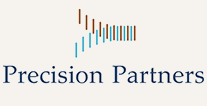Your advancement Constituent Relationship Management (CRM) project implemen- tation can be an enormous undertaking for your organization. Because of this, it is common for there to be various vendors and even a consultant relationship to aid your project.
Partnering with a consultant for your CRM project provides ongoing support with your extra undertakings — further improving efficiency and productivity. Developing a successful consultant relationship helps you maximize the benefits of your CRM implementation.
Here are a few things you should be aware of as you develop a successful partnership.
Authentic Communication
Being able to effectively communicate is one of life’s most essential skills. It enables you to pass information on to other people and understand what is being said. When it comes to working with partners for your advancement CRM project, it’s essential to practice good communication, but most importantly, authentic communication. Authentic communication is the act of listening more than you speak while being open, honest, and straightforward.
Authentic communication may feel uncomfortable at first, but when you’re comfortable with providing honest feedback with your consultant, it increases your CRM project efficiency. Whether it’s how they are conducting a specific meeting with stakeholders, a particular engagement, or the deliverables they are providing, you need to address these issues with honest feedback—even more so if your consultant is no longer proving value.
And the same is true when it comes to hearing your vendor or consultant’s concerns—you must be able and willing to listen. You should be open to a productive dialogue about any challenges throughout your CRM project—identifying steps to move toward the desired outcome.
Finally, an effective consulting partnership should be flexible and positively adapt to your CRM project needs.
Clear Roadmap
A successful consultant partnership has a clear roadmap. Your roadmap should identify your starting point and include clear objectives and ideas about how to get there. This roadmap should not feel vague. Instead, it should empower you to feel confident, so you can achieve the goals you have established.
Rely on your consultant’s ability to listen carefully and observe your organizational interactions and culture. Since they aren’t necessarily operating in your organization on a regular basis, they may pick up on challenges that could be a barrier to your success.
A good consultant should be able to identify your blind spots. They should also be able to determine what you don’t know and provide tactics to work through those challenges and barriers.
Trust
Trust means you’re relying on someone else to do the right thing. You should be able to trust your consultant in a myriad of ways. First, you should be able to trust they have the skills and abilities to perform what you’ve asked them to do. Not only to get the work done but to achieve the goals and move the organization forward.
Second, you should trust they are bringing their best people to engage with you. And lastly, at every turn in the engagement, you should be able to trust they are still your advocate and have your best interest in mind.
In a successful consultant partnership, there should be space to feel comfortable with honest communication—even when things are not going well—because it helps you identify an accurate course correction.
Engaging a consultant with a network of resources or connections provides your organization many opportunities. A consultant helps you leverage valuable resources and establish relationships in the industry—helping your organization complete tasks and make strong referrals for other needs.

